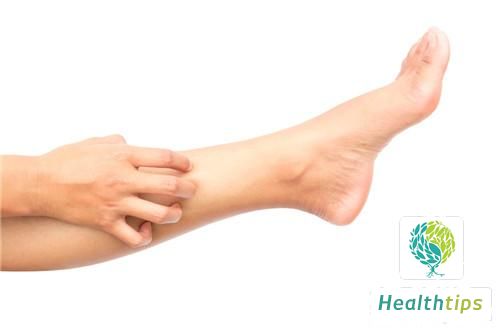Pruritus is the manifestation of pruritus, a skin disease without primary skin lesions. The skin may have a burning sensation, as well as a feeling of ants crawling on the skin. Due to pruritus, patients often scratch their skin, leading to symptoms such as redness, swelling, roughness, bleeding, and secondary infections. Avoid scratching the skin frequently. Why does the whole body itch? Let's take a look.
 1. Dry skin is the most common cause of generalized pruritus. Skin aging and decreased sebum secretion in the elderly can cause dry skin. Frequent bathing, using water that is too hot during bathing, or using strongly alkaline soap can also lead to dry skin. Excessively dry air can also contribute to dry skin.
2. Neuropsychiatric factors such as stress, anxiety, excitement, fear, depression, neurological dysfunction or disorders can also contribute to pruritus.
3. Systemic diseases and other conditions such as kidney disease, uremia, hyperthyroidism or hypothyroidism, diabetes, lymphoma, leukemia, obstructive hepatobiliary disease, Sjogren's syndrome, polycythemia vera, acquired immunodeficiency syndrome (HIV), connective tissue diseases, and other malignancies can cause generalized pruritus. Vaginal trichomoniasis, vaginal fungal infections, gonorrhea, and cervical cancer patients may experience vulvar pruritus. Hemorrhoids, anal fissures, polyps, and other conditions can lead to pruritus ani.
4. Endocrine disorders can also contribute to pruritus. Some women may experience itchy skin during pregnancy, which usually resolves after childbirth. Menstrual disorders can also cause pruritus vulvae.
5. Parasitic infections such as pinworm infection and scabies can also lead to pruritus.
6. Drug factors such as morphine, angiotensin-converting enzyme inhibitors, analgesics, vitamin B, chloroquine, and sulfonamide drugs can also cause pruritus.
7. Allergic factors such as exposure to allergenic plants, pollen, and other allergens can cause local skin pruritus.
8. External factors:
1. Dry skin is the most common cause of generalized pruritus. Skin aging and decreased sebum secretion in the elderly can cause dry skin. Frequent bathing, using water that is too hot during bathing, or using strongly alkaline soap can also lead to dry skin. Excessively dry air can also contribute to dry skin.
2. Neuropsychiatric factors such as stress, anxiety, excitement, fear, depression, neurological dysfunction or disorders can also contribute to pruritus.
3. Systemic diseases and other conditions such as kidney disease, uremia, hyperthyroidism or hypothyroidism, diabetes, lymphoma, leukemia, obstructive hepatobiliary disease, Sjogren's syndrome, polycythemia vera, acquired immunodeficiency syndrome (HIV), connective tissue diseases, and other malignancies can cause generalized pruritus. Vaginal trichomoniasis, vaginal fungal infections, gonorrhea, and cervical cancer patients may experience vulvar pruritus. Hemorrhoids, anal fissures, polyps, and other conditions can lead to pruritus ani.
4. Endocrine disorders can also contribute to pruritus. Some women may experience itchy skin during pregnancy, which usually resolves after childbirth. Menstrual disorders can also cause pruritus vulvae.
5. Parasitic infections such as pinworm infection and scabies can also lead to pruritus.
6. Drug factors such as morphine, angiotensin-converting enzyme inhibitors, analgesics, vitamin B, chloroquine, and sulfonamide drugs can also cause pruritus.
7. Allergic factors such as exposure to allergenic plants, pollen, and other allergens can cause local skin pruritus.
8. External factors:
Sudden changes in temperature, such as overheating of bedding or exposure to heat or cold, can trigger pruritus.
The use of strongly alkaline soap, cleansing cosmetics, and other irritants may stimulate the skin and cause pruritus. Contact with disinfectants, pesticides, deodorants, dyes, and other irritants can also lead to pruritus.
Materials of close-fitting clothing, such as synthetic fiber and wool, can trigger pruritus.
Poor hygiene conditions in living and working environments can also contribute to pruritus.




















